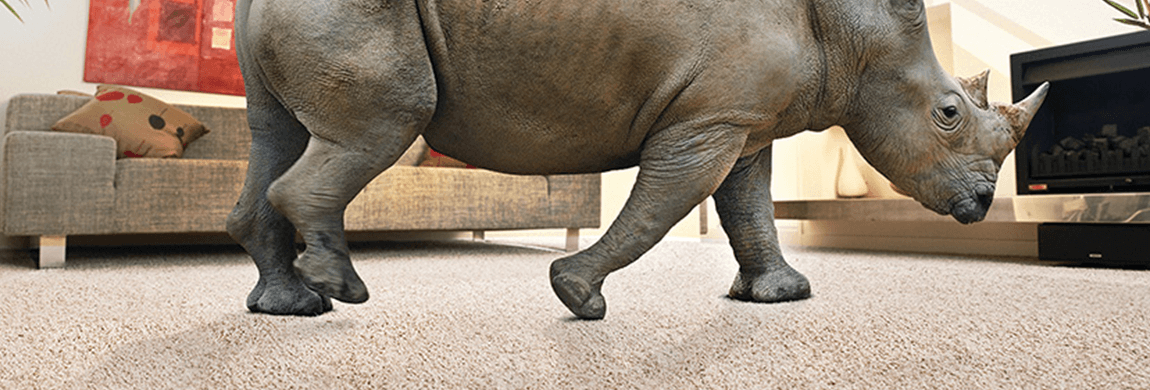Published on March 27th, 2019
You’ve probably worked out by now we love cleaning with vinegar. It’s a rock star of the natural cleaning world and is the main ingredient in many of our home cleaning solutions.
Here’s what I’ve learned about vinegar. It was discovered by chance more than 10,000 years ago and its name is derived from a French term, vin aigre, meaning ‘sour wine’. According to The Vinegar Institute, vinegar was used during the American Civil War to treat scurvy, and in World War I to treat wounds. And despite its obvious cooking benefits, vinegar is also a fantastic cleaning product with a range of uses.
Why is Vinegar such a Powerful Cleaner?

Household vinegar typically comprises about 5% acidity, making it a great cleaning acid because it can loosen mineral deposits while removing alkaline residues, such as soap scum.
While it boasts many positives, there are some things you shouldn’t use vinegar to clean. Here’s a list of the do’s and don’ts of vinegar use around the home.
Do

There are so many winners, but I’ve picked five of my favourites.
 Brighten Your Windows.
Brighten Your Windows.
Make a 1:5 ratio of vinegar to water and use it to clean your windows for streak-free shine.

 Clean the Washing Machine.
Clean the Washing Machine.
Pour a cup of the good stuff into an empty washing machine and run a hot cycle. You could also add it while clothes are being washed (during the rinse cycle is best) as it acts as a natural fabric softener.

 Remove Bathroom Build-up.
Remove Bathroom Build-up.
You can use vinegar to clean your shower and vanity taps. I like to soak a cloth in vinegar and leave it around the tap overnight – it works a treat for kitchen fixtures as well.

 Use it Around the Home.
Use it Around the Home.
Mix it with water and a few drops of essential oil in a glass spray bottle for a practical, yet yummy-smelling, all-purpose cleaner.

 Attack the Mould Monster.
Attack the Mould Monster.
Wet your tiles or mouldy areas with warm water, fill a spray bottle with 1:1 mix of water and vinegar with about 15 drops of Tea Tree Oil, shake and spray on the affected areas. Leave for 20 minutes and rinse! More heavily affected areas may need you to wait a little longer before rinsing. Severe cases of mould may require professional assistance.

Don't

 DON'T mix with bi-carb soda.
DON'T mix with bi-carb soda.
Used separately, these products have amazing cleaning strength, but together they’re pretty much useless. Let me put my science goggles on for this explanation. Bi-carb soda is a base, while vinegar is acidic (mixing together creates water and carbon dioxide). Combining them creates a cool fizzing reaction, but they also react and cancel each other out, leaving little more than water with a touch of salt in it.

 DON'T use vinegar to clean natural stones.
DON'T use vinegar to clean natural stones.
This includes tiled and benchtop surfaces such as marble or granite, as the acidity in vinegar can create an etching effect. Just some water and mild detergent should do the job for you.

 DON'T clean your wood floors with vinegar.
DON'T clean your wood floors with vinegar.
There’s a lot of debate around this but as the wood floor cleaning experts, here’s why it’s not a great idea. When you clean your floors, you’re not actually cleaning the wood, you’re cleaning the protective coating that’s been applied. And given vinegar’s acidity, you’re wearing down that finish and dulling your floor.

 DON'T use it to clean up eggy messes.
DON'T use it to clean up eggy messes.
Dropped an egg on the floor or benchtop? Using vinegar to clean it will make a bigger mess. The properties in vinegar speed up the protein hardening process – this is why we put vinegar into the saucepan when poaching an egg.

 DON'T mix it with bleach.
DON'T mix it with bleach.
We’re not big fans of bleach here at Electrodry but combining bleach and vinegar is a big no-no, especially in your washing machine. Mixing them creates chlorine gas, which can be an irritant to the eyes, throat and lungs. Best to avoid it altogether!

Related Article

How To Keep Your Home Clean with Lemons, Vinegar and Bi-Carb Soda
Saving money on cleaning solutions and reducing the amount of toxic cleaning chemicals go hand in hand.






